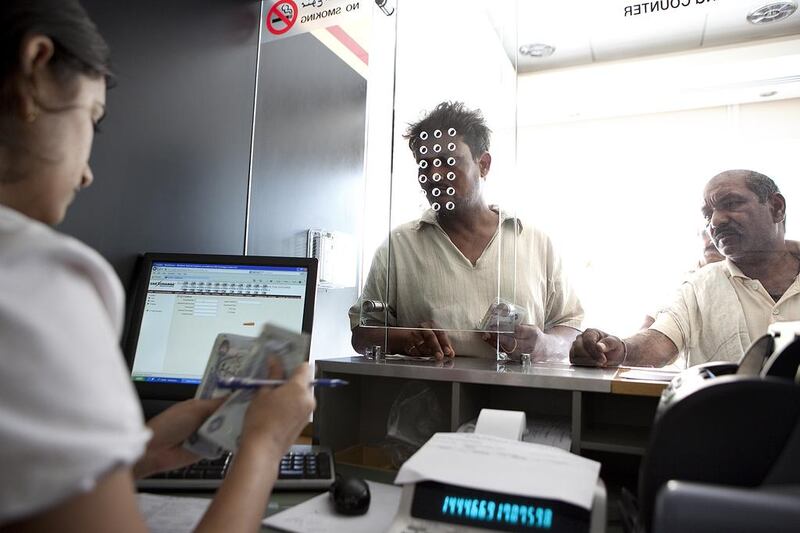Mumbai // The fall in oil prices did not negatively affect the amount of cash sent by workers to their home countries from the GCC last year, with total global remittance flows to developing countries rising to US$436 billion, according to a new report by the World Bank.
The World Bank warned, however, that the outlook was “uncertain”, predicting that remittance flows from the GCC “could decline if the oil price were to remain low for a few years”.
Oil prices have halved compared to June, with Brent crude yesterday trading above $58 a barrel.
Remittances from the Arabian Gulf region were particularly strong to India, Bangladesh, Nepal, Pakistan and a number of countries in the Middle East and North Africa, the report revealed.
Remittances by migrants worldwide to developing countries grew by 4.4 per cent to $436bn in 2014 over the previous year.
The World Bank highlighted early warning signs that the decline in oil prices could take their toll on remittance flows from the region.
“The substantial financial resources and long-term infrastructure development plans of the GCC countries imply that they will continue to demand migrant workers,” the World Bank said.
India remained the world’s largest recipient of remittances globally last year, with flows of $70.4bn, the report showed. It noted that India’s 0.6 per cent growth last year was “subdued”, speculating that this was “perhaps in part because the appreciation of the Indian rupee discouraged investment-related inflows”, following a sharp decline in the currency in 2013.
The GCC is the largest source of remittances to India, accounting for 37 per cent of the amount remitted in the financial year running to the end of March 2012, according to the Reserve Bank of India, the latest data available. Remittances from the GCC to India in that year stood at $24.9bn.
“The remittance growth to India has consolidated over the last couple of years,” said Sudhesh Giriyan, the chief operating officer of Xpress Money, a remittance company headquartered in Abu Dhabi.
Pakistan receives about 60 per cent of remittances from Gulf countries and recorded a 10 per cent increase of remittances from the Gulf in the last quarter of 2014, the World Bank said.
“This may reflect the concentration of South Asian migrant workers in the construction and services sectors, which are relatively less affected by falling oil prices.”
Remittance transfer costs are also falling for South Asian workers “as money transfer companies and mobile money transfer operators are working together with banks in the region to provide instant money transfer services”.
This year, the overall growth of remittance flows to developing countries is expected to slow to 0.9 per cent to $440bn, mainly because of a weak economic outlook for Europe and Russia, it predicted.
“Overall, remittances to the Mena region are expected to continue to grow over the next three years, but at a slower pace,” according to the World Bank. “The falling oil prices and nationalisation policies in Saudi Arabia pose downside risks in the medium-to-long run to inward remittances to Mashreq countries (Yemen, Egypt and Jordan), who receive large remittance inflows from GCC countries.”
business@thenational.ae
Follow The National's Business section on Twitter





